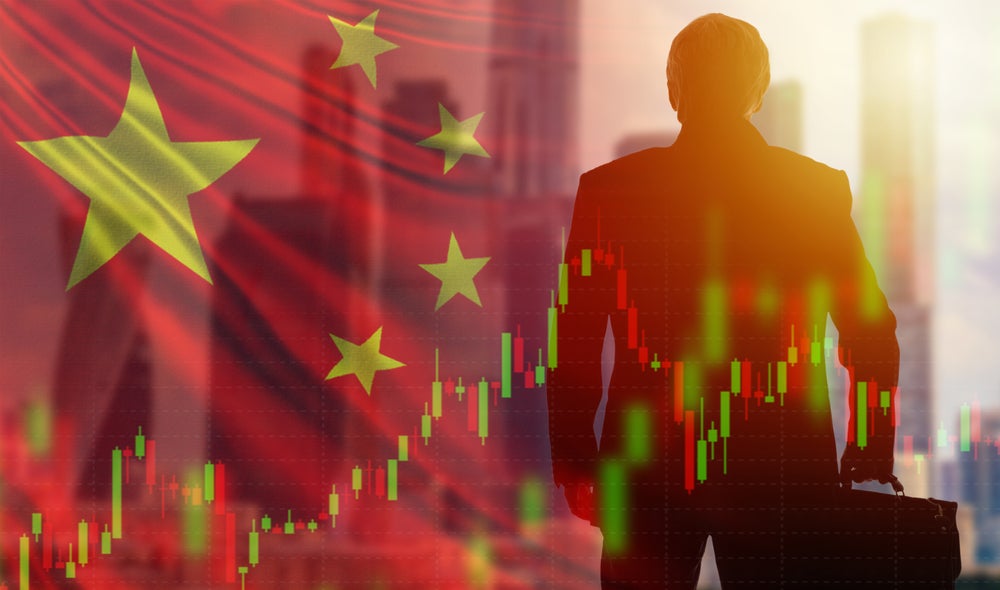
China has had a bumpy ride recently, but is this the year to make investments? the country is opening up after the global Covid-19 pandemic, having been blamed as the origin and strictly enforcing rules that nearly shut the country off completely. Patrick Brusnahan writes
Not even a quarter into 2023 and China is making huge headlines in private banking, wealth management and investments.
Standard Chartered is planning to increase its workforce in Hong Kong by up to 500 employees this year in a bid to explore the potential in the region’s loan and wealth management market.
The move will expand the British banking giant’s existing headcount by 9% to approximately 5,800 in Hong Kong, according to Standard Chartered Hong Kong CEO Mary Huen Wai-yi.
It will further help the bank to tap the rising opportunities in the Greater Bay Area as well as meet the demand for green finance.
In addition, the bank received in-principle approval from China Securities Regulatory Commission (CSRC) to establish a securities unit in mainland China.
How well do you really know your competitors?
Access the most comprehensive Company Profiles on the market, powered by GlobalData. Save hours of research. Gain competitive edge.

Thank you!
Your download email will arrive shortly
Not ready to buy yet? Download a free sample
We are confident about the unique quality of our Company Profiles. However, we want you to make the most beneficial decision for your business, so we offer a free sample that you can download by submitting the below form
By GlobalDataThe move will see the creation of Standard Chartered Securities (China), which will have RMB1.05bn ($155.69m) of capital injection initially.
The firm will offer underwriting, asset management solutions to asset-driven securities as well as own-account trading and brokerage services.
Based in Beijing, the securities unit will also provide onshore and offshore clients with various solutions associated with Chinese onshore capital markets.
Furthermore, Credit Suisse Group is considering an option to separate its investment banking unit in China as part of its initiative to reorganise the CS First Boston brand.
The move could see the Swiss bank retaining the securities and wealth unit in mainland China as well as shifting its Hong Kong team that oversees offshore deals to CS First Boston, the unnamed people told the publication.
Not only that, but American alternative investment management firm Hamilton Lane has strengthened its Asian footprint by opening a new office in Shanghai, China.
The new office represents the firm’s 6th branch in Asia after Hong Kong, Seoul, Singapore, Sydney, and Tokyo.
China with investments and assets
So what does this mean for the sector? Is it time to take chances on China and will that deliver significant returns?
Jaisal Pastakia, investment director at Handelsbanken Wealth & Asset Management, says: “China may be entering a new phase of development on a number of fronts. The longer-term effects of President Xi’s committee reshuffle remain to be seen, but fresh ideas from these new promotions, combined with an increasingly pragmatic approach to managing the COVID-19 pandemic, has the potential to improve the economic growth backdrop.
“Indeed, China’s rulers are committed to policies which will, at the very least, support economic stability into 2023. In November 2022, China’s regulators expanded a financing programme aimed at supporting bond issuance in the property sector, as well as issuing a 16-point plan to support the sector. The focus of policies laid out at December’s Central Economic Work Conference (an annual meeting which sets the national agenda for China’s economy) included further support for consumer spending and the technology sector.
“For China’s economy, and the value of Chinese assets, this should be good news. In the very near term, under more relaxed COVID-19 rules, we could see a slight impact to the economy as virus case numbers rise. But over the longer term, looser rules, and new senior committee members with a growth mandate to fulfil should lead economic activity to pick up.
“When it comes to pricing pressures, domestic inflation is currently very low (around 2%), but fewer (or less extreme) lockdowns could allow inflation to rise higher. Similarly, a boost to China’s economic activity could also create a boost for the global economy, which is in dire need of growth. However, it remains to be seen what this would mean for global inflation.”
Speaking to PBI, Jackie Mau, head of Global Private Banking, HSBC China, adds: “Increasingly, we see that our ultra-high and high net worth clients in mainland China understand the importance of building a well-diversified portfolio across asset classes and geographies, and of preserving wealth as well as capturing growth opportunities.
“For these reasons, they value working with foreign banks like HSBC, as we are able to use our international connectivity and universal banking model to their advantage, by providing access to a wide range of wealth management solutions from investment opportunities, to legacy and succession planning, and financing.
“The border opening also re-ignites foreign investors’ interest to travel into mainland China and re-engage with the latest development and investment opportunities, such as those driven by new waves of economic growth in sectors like EV and healthcare.”
Patrick Ho, Chief Investment Officer, North Asia, HSBC Global Private Banking and Wealth, continues: “China’s recent activity data turned out to be more resilient than consensus expectations. Most recent data such as passenger traffic data in January and February suggest that economic activities are rebounding rapidly. We forecast China’s GDP growth to rebound to 5.6% in 2023, and further to 5.5% in 2024. Coupled with the attractive valuation and potential upward revision in earnings, we remain mild overweight on Chinese equities.
“We continue to favour reopening beneficiaries in Hong Kong and mainland China with a focus on quality stocks in sectors such as travel, airlines, hospitality, food and beverages, and mass consumption sectors. We also favour e-commerce and online gaming stocks given the improvement in investor sentiment on economic growth and the recent policies favourable to the business outlook of select large internet platform companies.”
This shows ripe opportunity for investments in China, but caution must also be noted. With such a large economy like China opening up for the first time in years, there is much to grabbed. If you don’t, someone else will.







